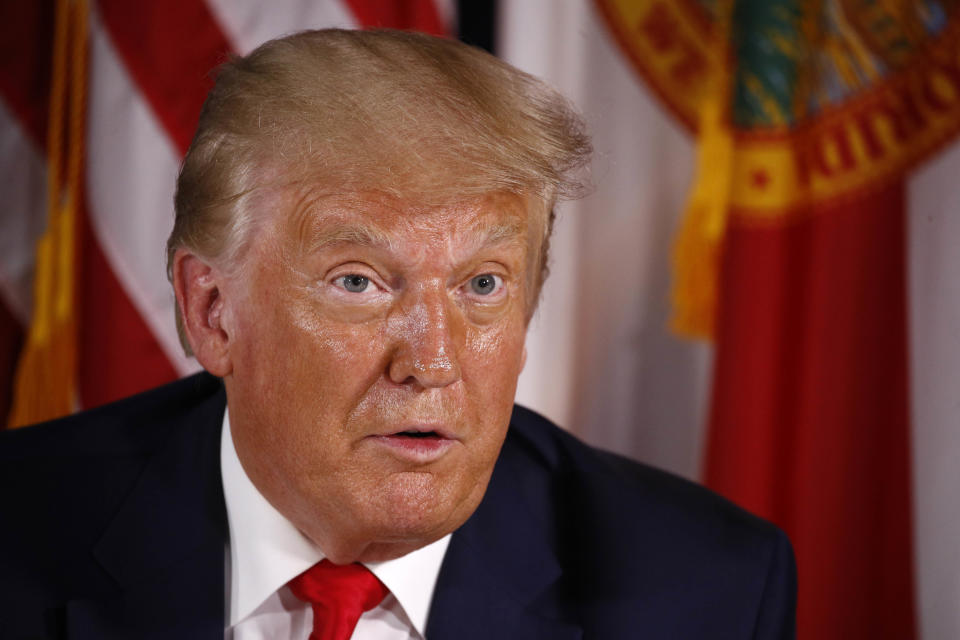PACs hit Trump for ‘police state,’ racism and Covid in ads targeting Black voters
Two Democratic PACS are using footage of recent police violence against protesters, President Donald Trump’s past comments about Black voters, and images of mass coronavirus graves in new ads aimed at persuading Black voters.
Priorities USA and Color of Change PAC are set to launch five new digital ads — three of them on Monday — in a roughly half-million-dollar buy. It's part of a larger, $3.4 million persuasion effort focused on Black voters that the two groups are running through the election in Florida, Michigan, Wisconsin and Pennsylvania.
One of the ads, titled "Police State," was rejected by Google last week for its use of videos of police beating, tear gassing and running over demonstrators at protests. The two organizations still plan to run the ad online and are considering other options.
The 30-second ad flashes video of police harming protesters as phrases such as “brute force" and "silencing dissent” are displayed on the screen. Trump’s June 1 speech declaring himself the “president of law and order” and his 2017 appeal to police to “please don’t be too nice” plays in the background.
The ads will run on MiQ, Vevo, Ampersand (which allows them to be placed on sites such as Essence.com) and Pandora. The groups are in talks with other platforms but are reevaluating after Google denied the “Police State” ad.
“By censoring images of police violence from their platform, Google is stifling a necessary response to the violence and chaos that Donald Trump incites and limits the ability of the American people to hold their leaders accountable,” Jenn Stowe, deputy executive director, of Priorities USA, said in a statement to POLITICO.
Though Google, Hulu and Verizon only rejected the one ad, it is unclear whether the PACs will run its other ads on those platforms. Google told the Washington Post it denied the ad, citing violence such as baton beatings to avoid harming those who use the site.
Though Biden is poised to win Black voters overwhelmingly, Democrats are hoping to turn them out in force — and guard against complacency — in key battleground states such as Wisconsin and Michigan. The president's campaign has made efforts to try to peel off Black voters in the hopes that even a marginal shift could make the difference in close states.
One of the three ads launched on Monday focuses on the Democratic nominee Joe Biden, promoting his campaign slogan that the 2020 election is about the “soul of the nation.” The third, titled "Winning," shows images of Black people in line at food banks and sick in hospital beds, and coffins being places in mass graves as Trump is heard saying, "We're going to win so much."

In two other ads that will run in the near future, the PACs focus on the pandemic’s impact on Black people as Trump says, “Oh look at my African American over here." It also calls out past discriminatory practices by Trump's businesses. The ad titled "Gamble," displays stats such as, “Black people are 2 times as likely to die from the virus” and asks “Would you risk four more years of Trump? Don’t bet your life on it.”
In another ad dubbed “Real Deal” the two PACs say Trump’s moves to flame racial divisions isn’t new.
“But he’s been a racist his whole life,” a narrator says. “In the 70’s Trump’s company was sued for directing staff to mark C for 'colored' on housing applications.”
“Perhaps most dangerous, [Trump] is using the tools and levers of his office to encourage his supporters to do the same, which these ads show using his own words and actions,” said Arisha Hatch, executive director of Color Of Change PAC. Hatch added that Google’s decision would “muffle Black voices.”

